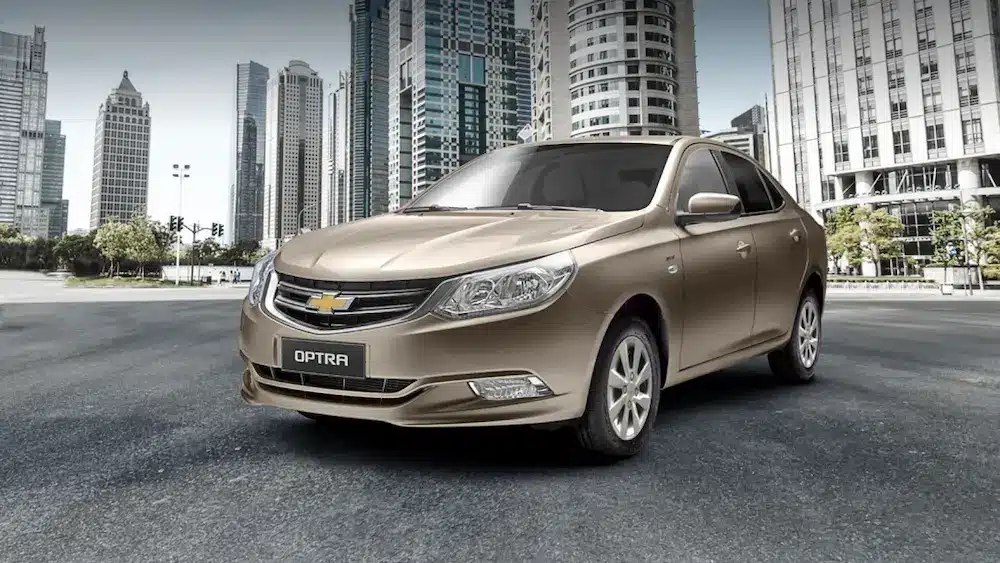Table of Contents
You finally find a used car that looks perfect—low mileage, good price, and a shiny exterior. But a few weeks later, the problems begin: strange engine noises, electrical failures, and unexpected repair costs. What went wrong?
This situation happens to many buyers who don’t follow the right process when purchasing a used car. The used car market is filled with great deals, but it’s also full of risks. Without proper research and careful inspection, you could end up with a car that drains your wallet instead of saving you money.
Whether you’re considering a Toyota Camry, a Nissan Altima, a Ford Explorer, or even a Chevrolet Tahoe, it’s crucial to understand the best tips for buying used cars to make a smart and informed purchase. In this comprehensive guide, we’ll walk you through everything you need to know before buying a used car.
7 Critical Tips Before Buying a Used Car
If you want to avoid costly mistakes, follow these seven essential steps before committing to a used car purchase.
Set a Budget That Covers All Expenses
A used car might have a lower purchase price, but it still comes with additional costs. Many buyers forget to consider insurance, maintenance, fuel efficiency, and unexpected repairs when setting their budget.
For example, a Dodge Charger may seem like a great deal for its price, but its high fuel consumption and expensive spare parts could make it a costly long-term investment. On the other hand, a Hyundai Sonata or a Mazda 6 might have lower maintenance costs while still offering style and comfort.
When setting a budget, always include:
- Insurance costs.
- Fuel expenses.
- Maintenance & spare parts.
By factoring in long-term costs, you’ll avoid spending more than you planned.

Choose the Right Car Model for Your Needs
Each car serves a different purpose. Some people need a family-friendly SUV, while others prefer a fuel-efficient sedan. It’s essential to choose a used car that suits your lifestyle.
Let’s break it down into three categories:
Best Used Sedans for Commuters
If you need a daily driver that’s reliable and fuel-efficient, consider:
- Toyota Corolla – One of the most popular used cars in Saudi Arabia, offering excellent resale value and reliability.
- Nissan Altima – A stylish midsize sedan with good fuel efficiency and performance.
- Honda Civic – Great for city driving with a comfortable interior and strong safety features.
Best Used SUVs for Families
If you need a spacious vehicle for family trips, these SUVs are solid choices:
- Ford Explorer – A powerful and comfortable SUV, perfect for long drives.
- Hyundai Santa Fe – Offers great fuel efficiency and modern safety features.
- Chevrolet Traverse – A spacious 7-seater with a smooth ride and ample cargo space.
Best Used Trucks & Off-Road Vehicles
For those who frequently drive in rough conditions, a tough and reliable truck or 4×4 is a must:
- Toyota Hilux – Known for its durability and ability to handle any terrain.
- Ford F-150 – One of the best-selling trucks worldwide, offering strong towing power.
- Jeep Wrangler – The perfect choice for off-road adventures.
Choosing the right category of car will ensure you get the best performance, efficiency, and long-term reliability.
Always Check the Vehicle’s History Report
A used car might look perfect from the outside, but it could have hidden issues. Before making any purchase, check the vehicle history report to uncover:
- Past accidents or major repairs.
- Odometer fraud (mileage tampering).
- Outstanding loans or legal issues.
Conduct a Detailed Inspection
Never judge a car by its shiny paint job. Many sellers repaint damaged vehicles to hide major defects. Always conduct a thorough inspection before buying a used car.
Things to check:
- Exterior – Look for scratches, dents, rust, or uneven paint (this may indicate previous repairs).
- Interior – Test the AC, infotainment system, and seats. If the car smells like mold, it could have water damage.
- Engine & Transmission – If you see leaks or hear strange noises, the car may have serious problems.
For instance, a Dodge Durango might have an impressive V8 engine, but if it wasn’t properly maintained, it could require expensive repairs.
Hiring a trusted mechanic to inspect the car is one of the most valuable tips for buying used cars.
Take a Test Drive in Different Conditions
A short test drive in a parking lot isn’t enough. You need to test the car under real driving conditions:
- Highway driving – Check if the car maintains stability at high speeds.
- Traffic conditions – Ensure the brakes and acceleration are responsive.
- Rough roads – If buying a 4×4 like a Nissan Patrol, make sure it handles off-road conditions well.
For example, a Range Rover Sport may feel luxurious, but if it struggles in traffic or has poor fuel efficiency, it might not be the right fit for you.
6.Verify the Paperwork Before Payment
Before making the final payment, ensure the car’s documents are in order:
- Vehicle title – It should have no legal issues or unpaid loans.
- Registration papers – Make sure the VIN (Vehicle Identification Number) matches the paperwork.
- Service records – A car with a well-documented service history is always a safer purchase.
Avoid Rushing into the Purchase
One of the biggest mistakes buyers make when shopping for a used car is rushing the process. Excitement can cloud judgment, making it easy to overlook critical details or fall for a pushy sales pitch.
Here’s why taking your time is crucial:
- Compare Multiple Cars – Don’t settle for the first car you see. Visit different dealerships, online listings, and private sellers to compare prices, mileage, and conditions.
- Wait for the Right Deal – Sometimes, sellers drop their prices if their car doesn’t sell quickly. Waiting a few weeks could save you thousands.
- Verify the Seller’s Reputation – If buying from a dealership, check their customer reviews. If buying from a private seller, verify their history and ask why they’re selling the car.
Is Mileage or Age More Important When Buying a Used Car?
One of the most common questions buyers ask when searching for a second-hand car is: Should I focus on mileage or age? The truth is, both factors matter, but they affect a car’s condition in different ways.
Mileage
Mileage measures how much the car has been driven. A vehicle with high mileage (over 150,000 km) has likely been subjected to greater wear and tear, meaning critical parts—such as the engine, transmission, and suspension—may require more frequent repairs.
Age
Even if a car has low mileage, age can still impact its condition. Rubber parts, such as seals, hoses, and tires, degrade over time, even if the car hasn’t been driven frequently. Electrical components, like batteries and wiring, can also suffer from age-related wear.
The Best Balance for Used Car Buyers
When considering tips for buying used cars, finding the right balance between mileage and age is key. The ideal used car typically falls in the 3-5 year-old range, with mileage below 80,000 km.
This age range offers:
- Modern safety features and technology (such as automatic braking, touchscreen infotainment, and fuel efficiency improvements).
- A significant price drop compared to new models, but without excessive depreciation.
- Less mechanical wear, reducing the likelihood of expensive repairs.

What is the Best Age for a Second-Hand Car?
When searching for tips for buying used cars, one of the most crucial factors to consider is the ideal age of the vehicle.
Why Depreciation Matters
New cars lose value rapidly, especially in the first three years, often dropping 40-50% in price. For instance, a car that originally costs 100,000 SAR could be worth just 50,000-60,000 SAR after three years. This depreciation makes buying a second-hand car a smarter financial move.
Why 3-5 Years is the Best Age Range
Experts agree that a 3-5-year-old car is the sweet spot for used car buyers. At this age, you get:
- Significant savings: The steepest depreciation has already passed.
- Modern technology & safety features:Unlike older models, these cars still have up-to-date systems.
- Lower maintenance costs: Major repairs are less likely at this stage.
The Risks of Buying an Older Car
While a cheaper, older car may seem like a good deal, cars older than 8 years often come with:
- Frequent breakdowns: Worn-out components like brakes, engines, and transmissions.
- Higher fuel consumption: Older models are less efficient than newer cars.
- Outdated safety features: Missing advanced tech like lane assist or emergency braking.
For anyone looking for tips for buying used cars, focusing on vehicles between 3-5 years old ensures
In conclusion, after exploring the seven most important tips for buying used cars, it’s clear that purchasing a second-hand vehicle is not just a transaction—it’s a long-term investment in your comfort, safety, and financial well-being. By carefully planning, conducting thorough inspections, and understanding the car’s history, you can avoid costly mistakes and ensure that your purchase meets your needs.
If you are looking to buy a reliable, 100% inspected, and guaranteed used car, we at Soum offer a wide selection of high-quality used vehicles that feel just like new. Simply visit our car section, choose your preferred vehicle, and one of our team members will contact you immediately to assist with a seamless and secure purchase.


















